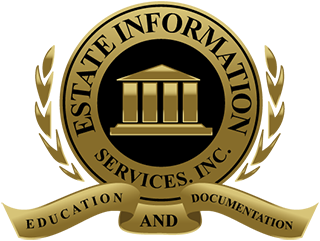Estate Planning and How it Can Affect Your Family.
What is Probate?
- Probate is a legal process
- A Will still passes through probate
- The historical purpose of probate court
- Your family has no control
What causes Probate?
- Probate is a Latin derivative that means “to prove.”
- A will must be proven before the court.
- The existence of a will requires probate court.
The Probate Challenge
- Time: During the entire probate process your estate and its assets are frozen.
- The average length of a probate proceeding is 6 months to 18 months.
- The cost to maintain the property and pay court fees are passed on to your family.
- Contestability: Every estate probated in Michigan is required by state law to be open for creditors for a mandatory period of six months.
- During that time any person may file a claim for assets in the estate. This causes a delay of closing the probate estate
- A claim leaves your family with two options:
- Pay the claim
- Pay an attorney to fight it
- Also encourages ugly disputes amongst heirs contesting what “you really wanted to have happened.”
- Loss of Privacy: Probate will cause your estate to have a public record that anyone can access or copy by going to the county courthouse, or possibly via the Internet.
- What you are worth, to whom you gave your money and property, and how you distributed your legacy is now public knowledge.
- Fees: The average cost of probate is about 5% to 10% of the value of your estate.
- This includes filing, and legal and inventory fees based on the gross value of the estate.
How Probate Will Affect You
- Loss of:
- Money
- Time
- Control
- Privacy
- A Process that will be costly
- A probate judge will determine how your legacy is passed on to your heirs
What is Living Probate?
- What is a guardian? A guardian is a person appointed by the probate court and given the power to make some or all decisions about the care of another person.
- What is a conservator? A conservator is a person or corporation appointed by the probate court to manage another person’s property and financial affairs.
The Value of Your Estate
- Home
- Vacation or rental property
- Investments
- Bank Accounts
- Savings Accounts
- Personal Property
- Collections (Guns, antiques, Cars, etc.)
Revocable Living Trust
- Holds title of your property
- You are the primary trustee
- You retain control of all your assets
- You determine how your assets will be distributed.
Advantages of a Revocable Living Trust
- Bypass the Probate Court Process
- Estates in Trusts can be settled quickly
- Saves time, probate costs, and legal fees
Why People Get Trusts
- 6 Major Reasons for creating a Trust
- Maintain control
- Flexibility
- Privacy
- Quick transition
- Preserve estate value
- Peace of mind
Customizing Your Trust
- You maintain control
- A Trust is flexible
- Easy to set up and maintain
- Provides for minor children
Who Is Involved With Your Trust
- Settlor: You
- Trustee: Controls the trust (You)
- Beneficiary: Who the trust benefits
- Successor Trustee: Whomever you choose
- Must follow your wishes
- Trust becomes “Irrevocable”
What’s Placed in Your Trust?
- Real estate and financial assets
- You have total control over these assets
- Our experienced team will help
- Placing assets in your trust is vital to avoid the probate court process
Beyond A Living Trust
- A comprehensive Estate Plan includes:
- Certificate of trust & notarized summary
- Durable Power of Attorney for Financial
- Durable Power of Attorney for Health Care
- H.I.P.A.A Medical Information Release Form
- A pour-over Will
- Final Funeral Instructions
- Transferring assets into the trust (funding)
- Life Insurance and Financial Investments assessment
How A Trust Will Help You
- Allows you to maintain control
- Designed to fit your specific needs
- Maintains privacy
- Saves your family time and money during an emotionally difficult time
- Avoids legal expenses
- Peace of mind for you & your family
Creating Your Personal Estate Plan
- Complete attorney retainer agreement and client information sheet
- List people who will be involved with your trust
- List real estate, financial investments and personal valuables
- Sign the documents and submit a deposit
- Schedule trust delivery & review
- Friends & family who may need estate planning help
How To Take The Next Step
- Will a Trust preserve your estate?
- Is a Trust affordable vs. Probate Court?
- Do you understand how a trust works?
- Any questions or concerns.
Here Are Your Options
- A Will / No Plan
- Cost of Probate and Attorney Fees
- Long Probate Delays (6 to 18 months)
- No Privacy: Public
- Less Control: Courts Have Control
- No Guardianship
- A Revocable Trust
- Funding Assistance
- Estate Settlement Assistance
- No Probate Delays
- Completely Private
- No Executor Fees
- No Probate Fees
- Complete Control
- Guardianship Included



